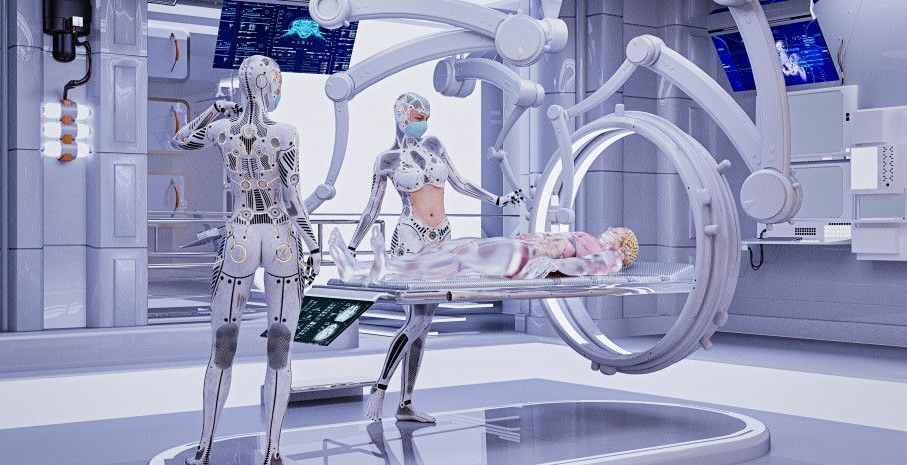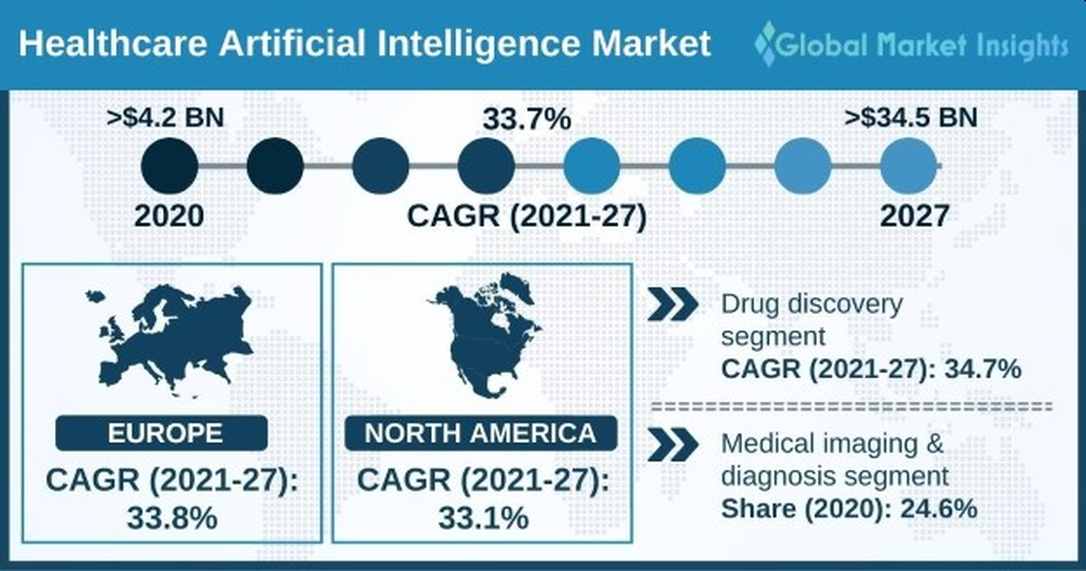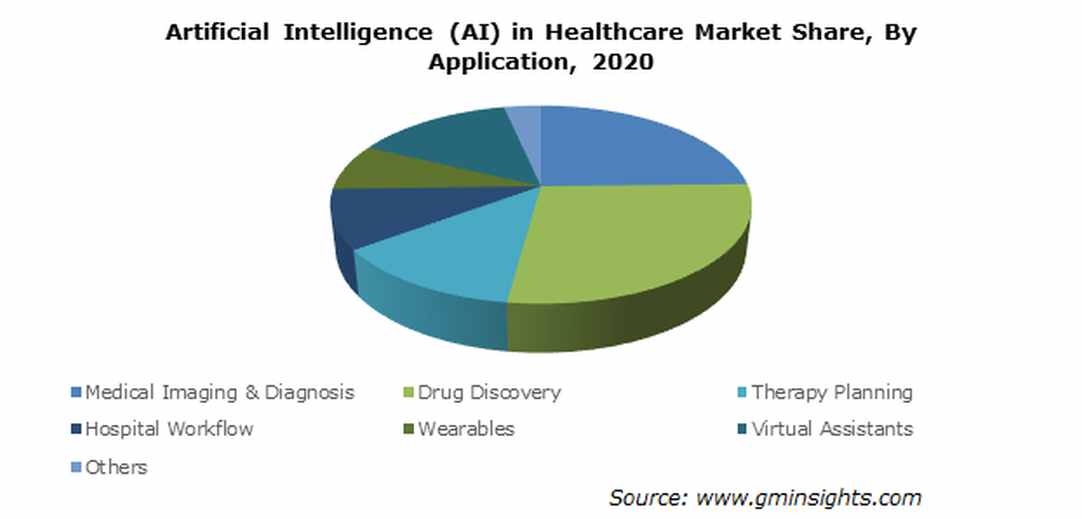Artificial Intelligence (AI) in healthcare market to surpass $34.5 billion by 2027

Despite all the buzz about cryptocurrency, the metaverse, and NFTs, artificial intelligence continues to dominate one of the top technology trends of the decade. In our piece about the Top 10 Technologies of The Next Decade, we discussed the rise of artificial intelligence (AI) and how it permeates every facet of our lives.
In recent years, we see rapid adoption of AI across various industries including banking, finance, robotics, automation, Internet of Things (IoT), cybersecurity, cloud computing, cognitive automation, and many more. In addition, we also witnessed the rise of a new type of AI called Formative AI.
Unlike generative AI which mainly enables machines to use things like text, audio files, and images to create content, formative AI has the capability to dynamically change itself to respond to a situation. Formative AI can also adapt over time and generate novel models to solve specific problems.
In 2020, Statista estimated that the global AI software market would grow approximately 54 percent year-on-year, reaching a forecast size of $22.6 billion. But that number is now about two-thirds of the estimated healthcare AI market in the next five years.
A recent research report by Global Market Insights, Inc., claims that Artificial Intelligence (AI) in Healthcare Market will cross $34.5 billion by 2027.

Global artificial intelligence (AI) in healthcare market share is set to register commendable growth over the forecast spell. Broadening the application scope of AI technology in medical applications like imaging, drug discovery and genomics is one of the major factors propelling this growth.
Although the emergence of artificial intelligence as a disruptive force across the industrial spectrum has been in the works for the past few years, the onset of the COVID-19 pandemic has rapidly accelerated its growth trajectory, especially in healthcare applications. For instance, according to Appen’s State of AI 2020 Report, nearly 41% have expedited their strategies for AI development during the crisis. A major reason for this is the implementation of social distancing protocols, which have generated significant interest in contact-free patient consultations over the past year.
With an increasing section of the patient population turning towards virtual or telehealth operations, companies are also responding to the trend and introducing enhanced solutions for virtual care, including healthcare AI. For instance, in 2021 Telia, Ericsson, and Sweden-based Sahlgrenska University Hospital tested the use of artificial intelligence to develop insightful planning and prediction models for healthcare resources and demand during the pandemic, with use-cases spanning across diagnosis, triage, treatment, and transmission prevention.
The report also includes a comprehensive analysis of major Artificial Intelligence (AI) in Healthcare industry segments, based on application and region.
Market, By Application
- Therapy Planning
- Virtual Assistants
- Medical Imaging & Diagnosis
- Wearables
- Drug Discovery
- Hospital Workflow
- Others
Market, By Region
- North America
- Europe
- Asia Pacific
- Latin America
- Middle East & Africa

According to the report, Modernizing Medicine, IBM Corporation, Sophia Genetics, and NVIDIA Corporation, among others are the key players operating in the market.
Collaborative efforts by major contenders will power AI in healthcare market trends
Science has seen some major breakthroughs over the past few years, with AI, quantum computing, high-performance computing, and other technologies being employed increasingly to overcome bottlenecks in healthcare and scientific discovery. These breakthroughs have created ample opportunities for healthcare and technology firms worldwide to develop novel healthcare AI technologies to tackle these issues.
For instance, in March 2021, IBM and Cleveland Clinic unveiled a 10-year collaboration to launch the Discovery Accelerator, a new center designed to use artificial intelligence, quantum computing, and high-performance hybrid clouds to accelerate healthcare discovery. The alliance is geared towards establishing wide-ranging research and clinical infrastructure, to enable extensive data-based medical research, support new discoveries for patient care and create innovative solutions for persisting health threats like coronavirus.
Increasing government initiatives and investments to bolster North America AI in healthcare market share
The North American healthcare AI industry is set to witness a commendable growth trajectory over the years ahead, on account of the burgeoning investment interest and initiatives by governments in regions like the U.S. to augment the use of AI technology in medical applications.
To illustrate, in January 2021, the U.S. Department of Health and Human Services (HHS) released a new strategy for AI in healthcare, focusing on areas designed to ease and encourage the adoption of artificial intelligence technology. Through the strategy, the HHS will aid AI innovation in health and human services, by highlighting mission-driven AI prospects and funding grants, programs, and research efforts leveraging AI-based solutions to provide outcomes, which could prove beneficial for the regional artificial intelligence in healthcare market in the long run. You can find the full report here.




